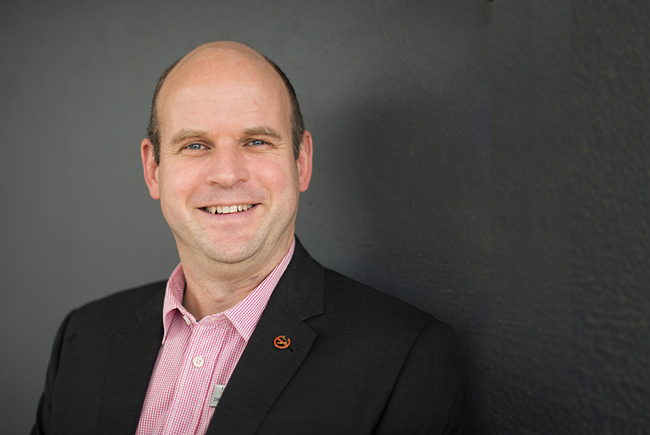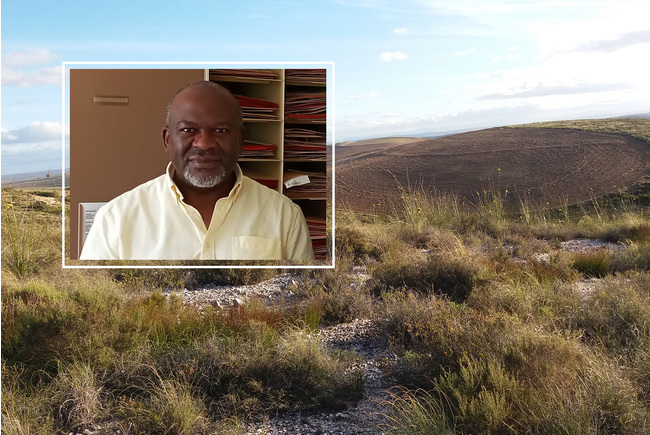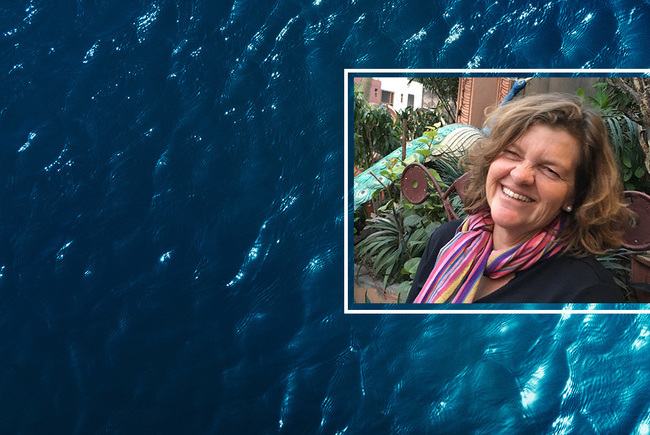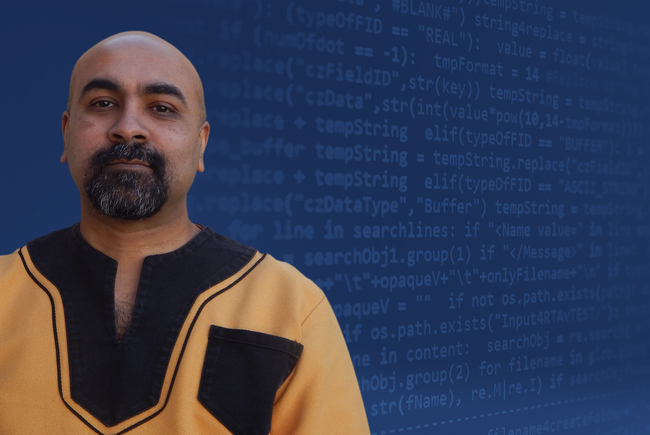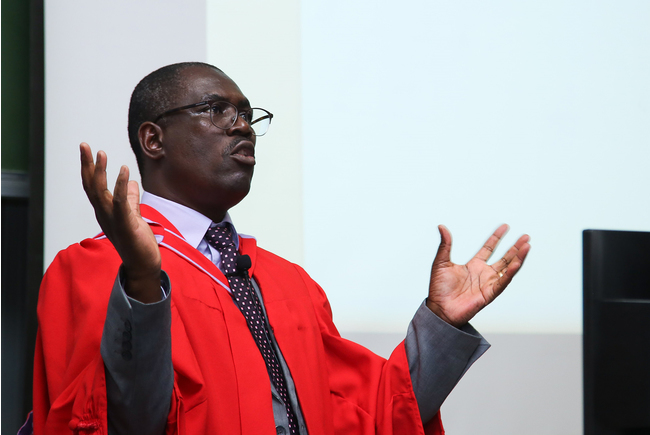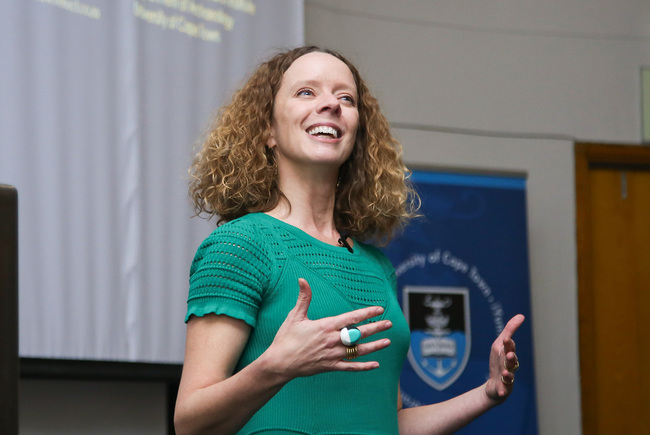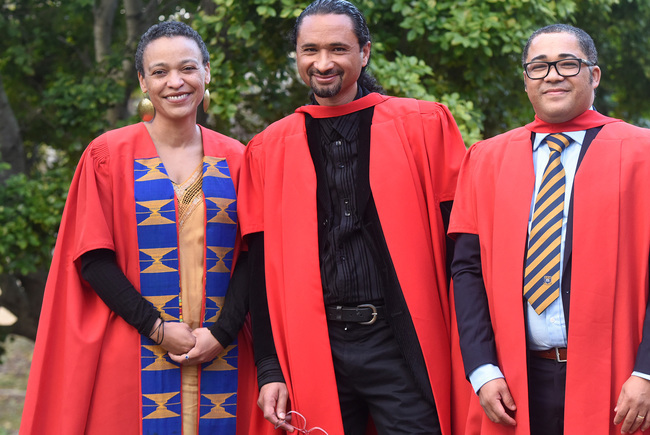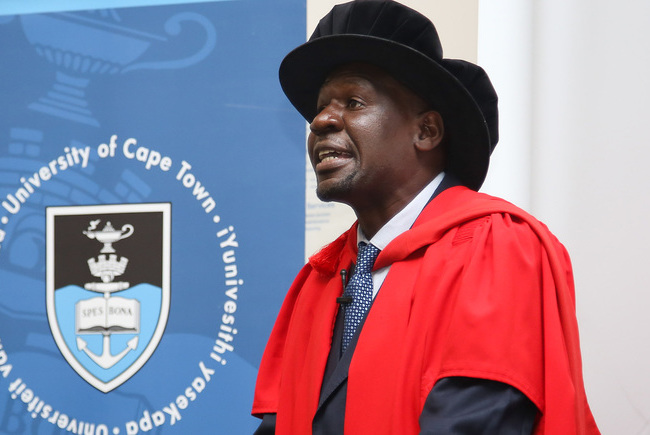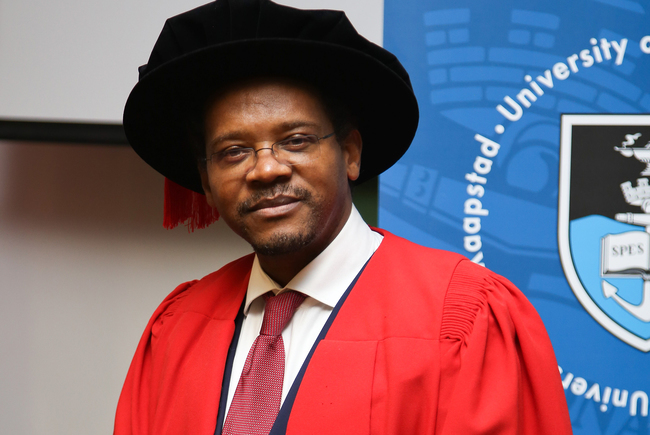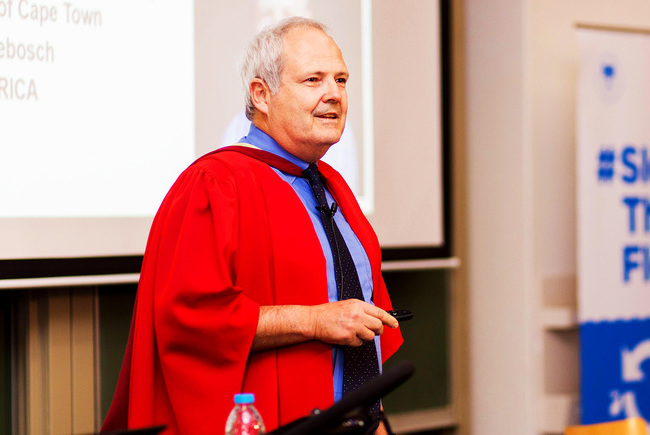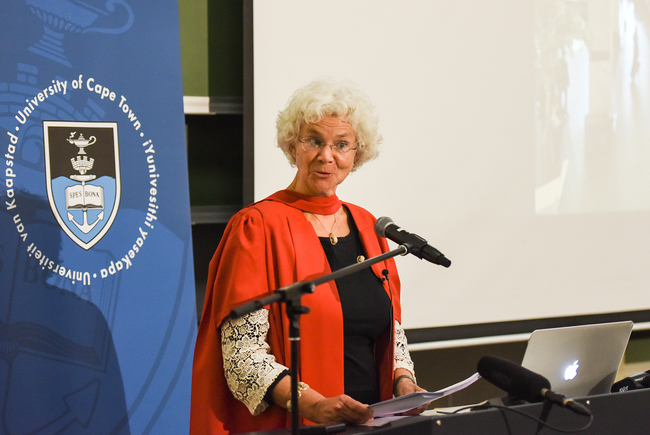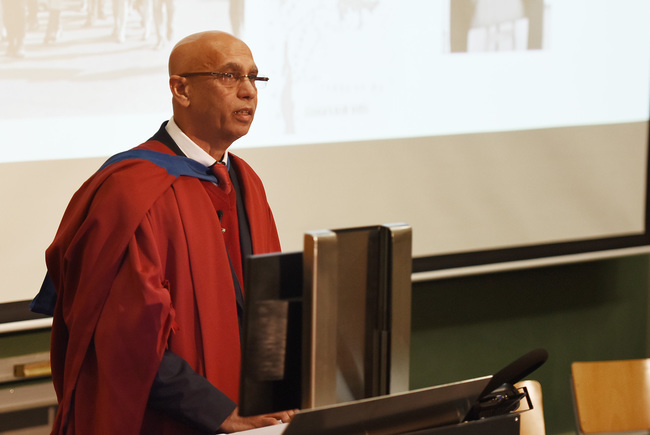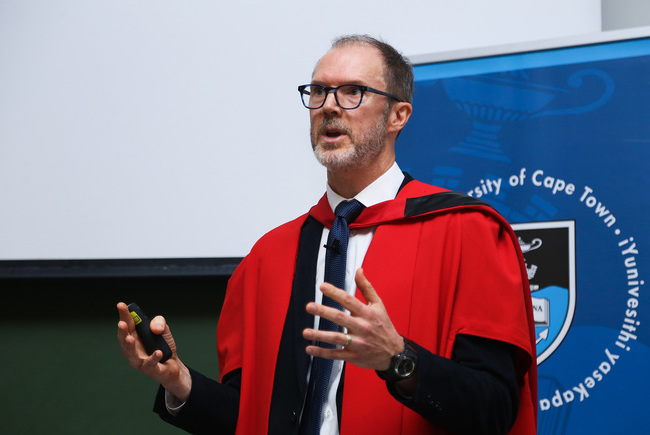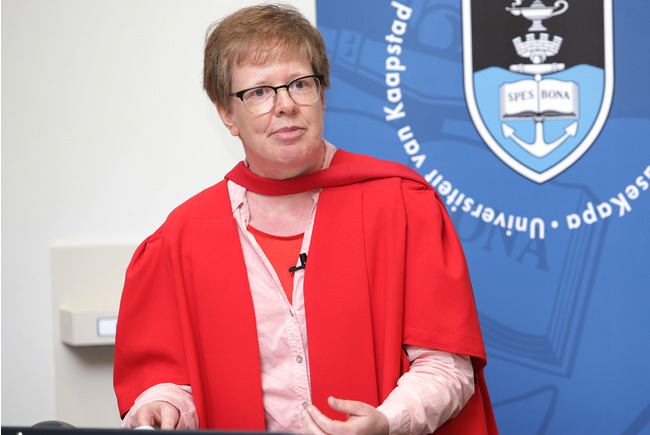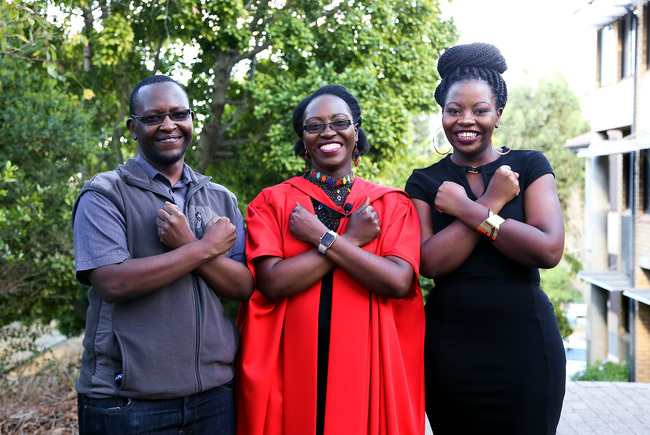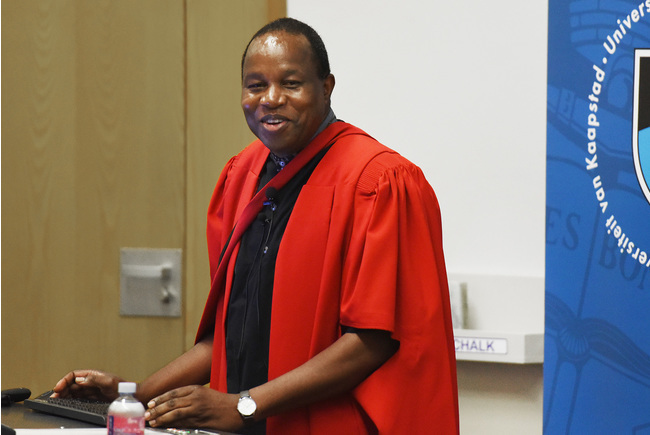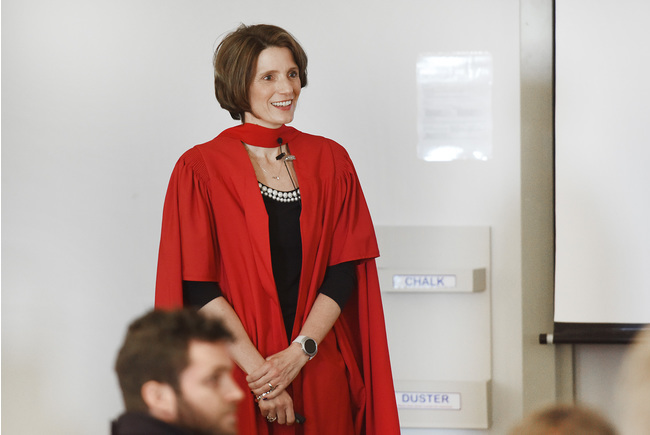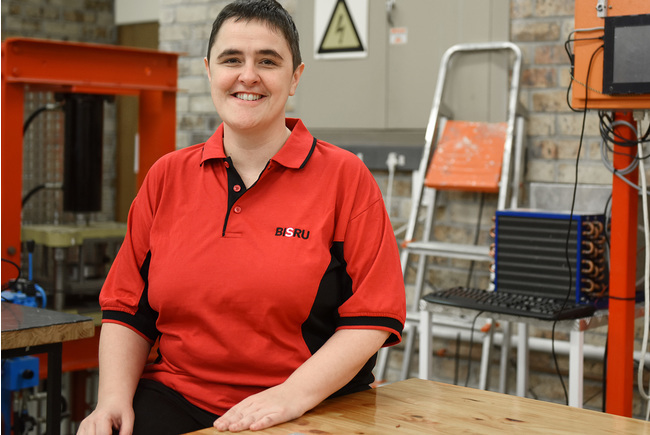Immunity, outbreaks and building vaccine sovereignty
25 November 2025 | Story Stephen Langtry. Photo Robin Thuynsma. Read time 7 min.
The University of Cape Town (UCT) hosted the final inaugural lecture of its 2025 series on 20 November. It was delivered by Professor Wendy Burgers in the New Learning Centre Lecture Theatre on the Faculty of Health Sciences (FHS) campus.
Titled “In Defence of Us All: Engineering Immunity in the Age of Outbreaks”, the lecture traced Burgers’ scientific journey through three global health crises – HIV, tuberculosis (TB), and COVID-19 – while highlighting the urgent need for vaccine equity, local innovation, and moral courage in the face of global injustice.
Vice-Chancellor Professor Mosa Moshabela opened the event and emphasised the significance of an inaugural lecture within the academic community. “These are always very personal occasions,” he said, “but they also demonstrate how the work that you do impacts public life and enhances institutions, ours included.” He praised Professor Burgers for her contribution to virology and immunology, noting her leadership in strengthening South Africa’s capacity for vaccine testing, immune-response analysis, and biotechnology innovation.
“She embodies the values of curiosity, creativity, persistence, integrity, humility and kindness.”
Professor Carolyn Williamson, the head of the Division of Medical Virology, introduced Burgers. She recognised Burgers as a “world leader in immunology” whose work has shaped global understanding of T cell immunity and its role in vaccine protection. Professor Williamson also spoke to Burgers’ far-reaching impact as a teacher, mentor, colleague, and advocate. “Wendy is much more than metrics,” she said. “She embodies the values of curiosity, creativity, persistence, integrity, humility and kindness.”
Burgers opened her lecture with two personal dedications: first to her mother, whose sacrifices made her career possible, and second to healthcare workers, academics and students in Gaza. She called attention to the “scholasticide” that has destroyed all 12 universities in the region, as well as widespread attacks on health systems and workers. “If we love justice, and work towards justice,” she said, “let us have the moral courage to stand for justice everywhere.”
A lecture in three acts
Her scientific narrative unfolded in three acts. Act 1 focused on the immune system’s battles with viruses, beginning with her early fascination with HIV in high school. She described the “invisible wars” fought within the body and explained why T cells, often overshadowed by antibodies, are essential for long-term immune protection. Her early work at UCT as part of the South African AIDS Vaccine Initiative, and later collaborations with CAPRISA, helped refine understanding of how specific T cell responses contribute to controlling HIV and advancing vaccine development.
“By fostering scientific expertise and entrepreneurial mindsets early, we can grow young scientists who not only produce knowledge but apply it for public benefit.”
Her research into HIV-TB co-infection revealed the complex interplay between pathogens. “Immunity is never tidy,” she noted, explaining how HIV reprogrammes TB-specific T cells and how studies of infected lung tissue illuminated new pathways for vaccine design.
Act 2, “Memory as Medicine”, charted the immunological insights gained during the COVID-19 pandemic. Having studied viral evolution for years, Burgers and her collaborators, including Dr Catherine Riou and Professor Penny Moore, moved quickly to investigate how antibodies and T cells responded to SARS-CoV-2 and its variants.
As new variants such as Beta, Delta and Omicron began to evade antibody responses, one critical question emerged: Would T cells still recognise them? Burgers described a now widely cited national collaboration of 40 scientists who, working through travel bans and supply delays, raced through 18-hour days over 12 weeks to answer that question. Their findings showed that despite Omicron’s nearly 40 mutations in the spike protein, T cell responses remained robust.
“This was reassuring,” she explained. “Even when T cells cannot prevent infection outright, they help prevent severe disease.” Her team’s work informed both the World Health Organization and United States public-health agencies preparing for Omicron’s spread.
Act 3 centred on vaccines – both their power and their precarity. Burgers reminded the audience that global childhood vaccination programmes have saved an estimated 154 million lives. Yet vaccine access remains deeply unequal, as shown during COVID-19 and again in the unaffordable pricing of newly developed vaccines, such as the maternal vaccine for respiratory syncytial virus (RSV).
“This is precisely why vaccine sovereignty matters,” she said. She highlighted two South African institutions (Afrigen and Biovac) that are shifting the continent from vaccine dependency toward innovation and manufacturing capacity. Her own laboratory is supporting Afrigen in developing locally produced mRNA vaccines, including candidates for RSV and Mpox. “These collaborations are not just academic exercises,” Burgers said. “They are acts of sovereignty.”
A call for scientific and moral solidarity
Burgers emphasised the importance of training young scientists. She celebrated the students and researchers in her group and outlined two major training initiatives she is leading. The first is UCT’s bid to host the Presidential PhD Programme in Advanced Biotechnology, which will prepare doctoral candidates not only as researchers but as innovators with industry-ready skills. The second is the ongoing development of a new undergraduate programme in infectious disease and immunology, which will evolve into a major focusing on infectious disease and innovation.
“The success of vaccines has made them less visible, but not less essential.”
“By fostering scientific expertise and entrepreneurial mindsets early,” she said, “we can grow young scientists who not only produce knowledge but apply it for public benefit.”
While scientific threats persist, Burgers warned that misinformation and vaccine hesitancy are equally dangerous. Measles alone caused over 100 000 deaths in 2023, many among unvaccinated children. “The success of vaccines has made them less visible, but not less essential,” she stressed.
She closed with a reflection on the interconnectedness of global health. “A virus crossing species in one part of the world can alter lives and futures across every continent,” she said. Scientific progress, she argued, must be matched by solidarity: scientific, institutional, and moral. “How do we defend ourselves, all of us, in the age of outbreaks?” she asked. “Not just with science, but with solidarity, as we build a more prepared, more equitable world.”
Delivering the vote of thanks, Dr Heidi Segal offered a reflection on Burgers as a scientist and human being, describing her as a devoted daughter, joyful family member, loyal friend and deeply principled academic shaped by the political awakenings of the early 1990s. Dr Segal traced their 30-year friendship from first-year to co-leadership roles today, emphasising Burgers’ authenticity, compassion and unwavering moral compass.
In his closing remarks, Associate Professor Lionel Green-Thompson, the dean of the FHS, celebrated the communal meaning of an inaugural lecture, acknowledging Burgers’ family and the breadth of disciplines represented in the audience. He highlighted her powerful reminder that “science does not live in a laboratory”.
 This work is licensed under a Creative Commons Attribution-NoDerivatives 4.0 International License.
This work is licensed under a Creative Commons Attribution-NoDerivatives 4.0 International License.
Please view the republishing articles page for more information.
The UCT Inaugural Lecture Series
Inaugural lectures are a central part of university academic life. These events are held to commemorate the inaugural lecturer’s appointment to full professorship. They provide a platform for the academic to present the body of research that they have been focusing on during their career, while also giving UCT the opportunity to showcase its academics and share its research with members of the wider university community and the general public in an accessible way.
In April 2023, Interim Vice-Chancellor Emeritus Professor Daya Reddy announced that the Vice-Chancellor’s Inaugural Lecture Series would be held in abeyance in the coming months, to accommodate a resumption of inaugural lectures under a reconfigured UCT Inaugural Lecture Series – where the UCT extended executive has resolved that for the foreseeable future, all inaugural lectures will be resumed at faculty level.
Recent executive communications
2025
2024
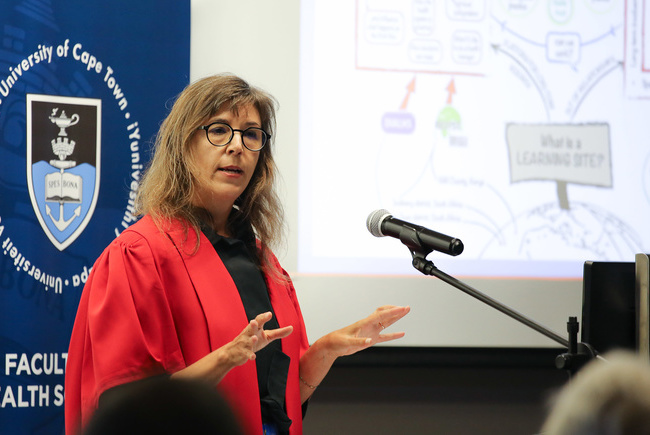
Professor Susan Cleary delivered her inaugural lecture on 14 March.
14 Mar 2024 - 5 min read2023
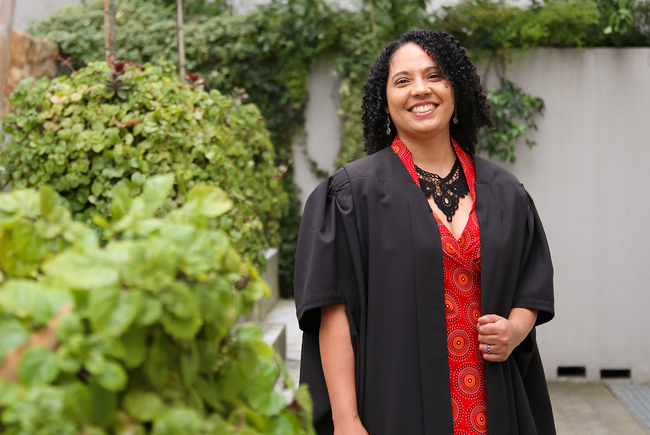
Prof Lydia Cairncross’s inaugural lecture provided a snapshot of the career path of a surgeon and community activist whose commitment to social justice means her work doesn’t end in the operating theatre.
02 Nov 2023 - 8 min read2022
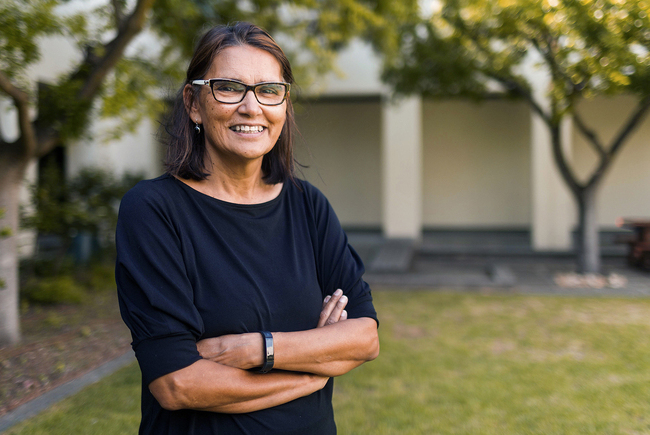
Professor Linda Ronnie is in UCT’s Faculty of Commerce.
28 Sep 2022 - 6 min read2021
2020
2019
2018
2017
2016 and 2015
No inaugural lectures took place during 2015 and 2016.







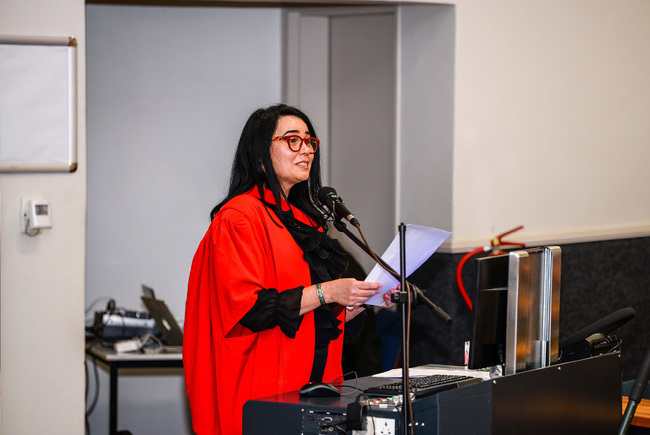


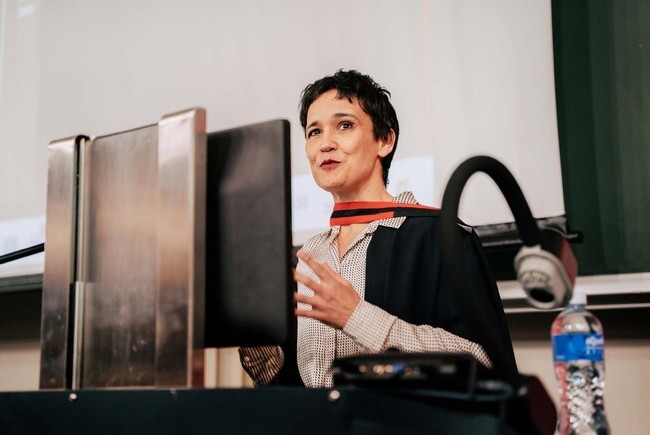
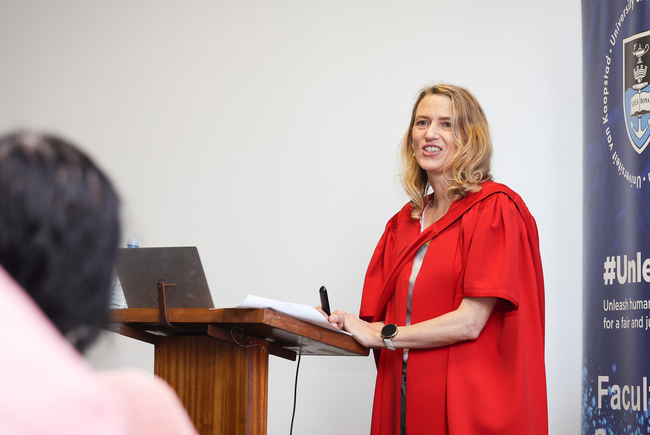
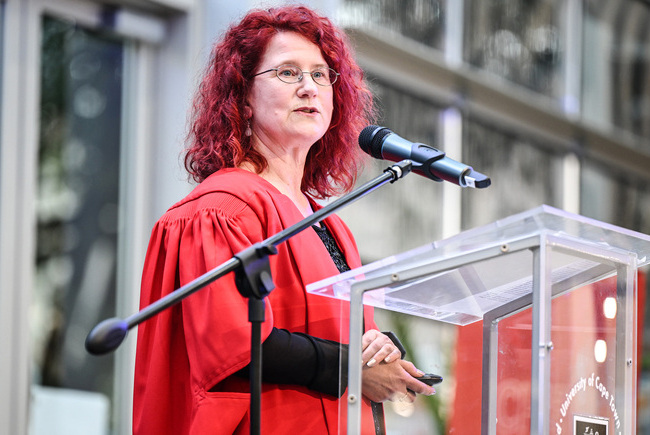

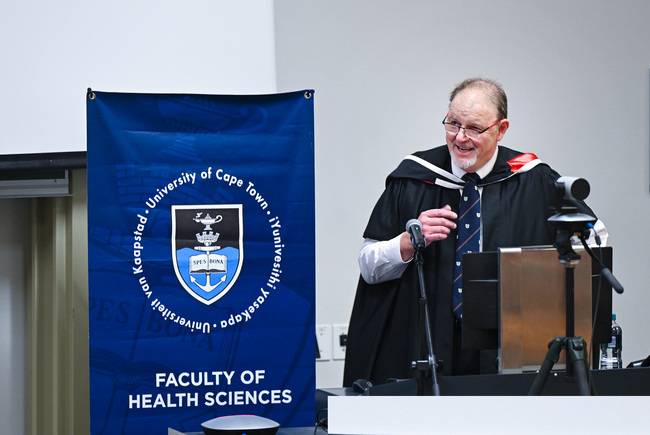
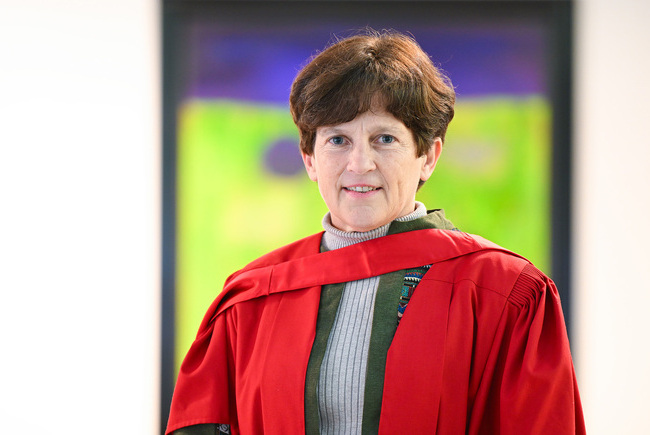
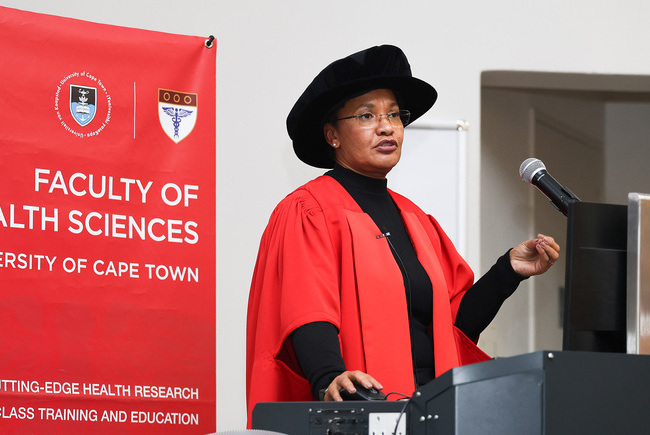
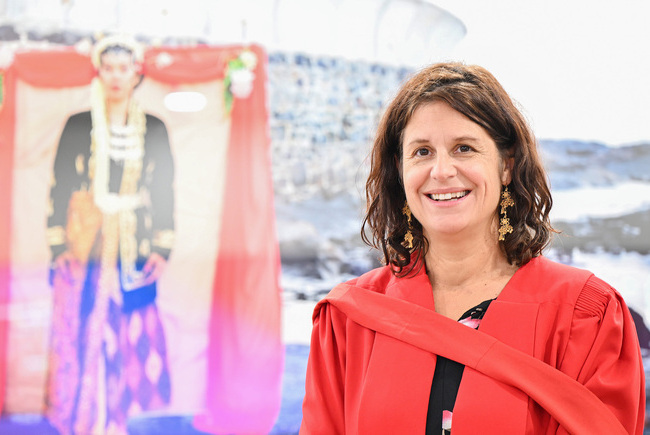
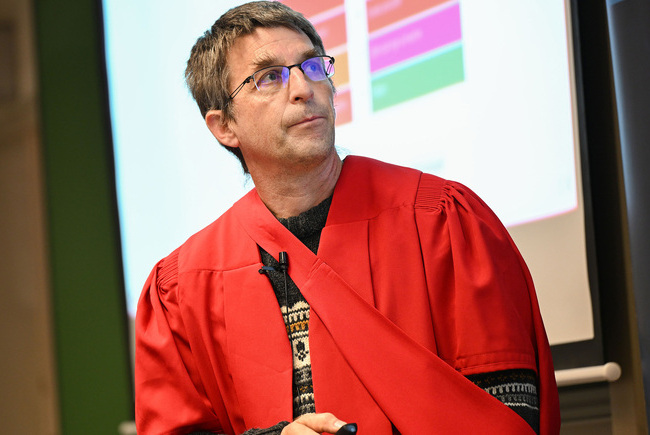
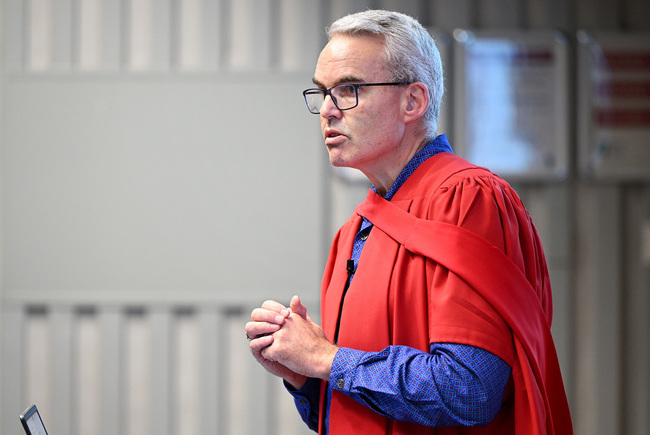

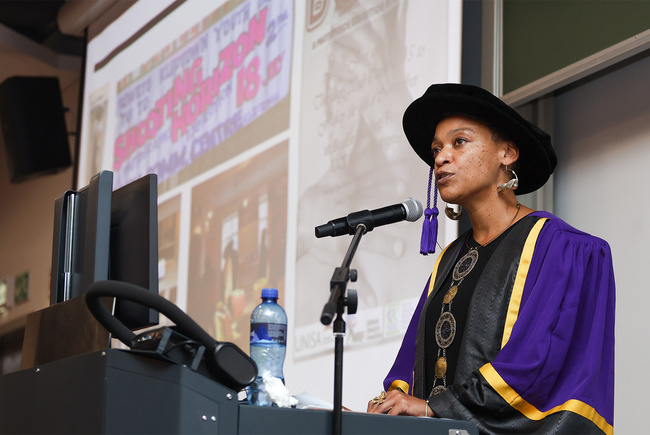
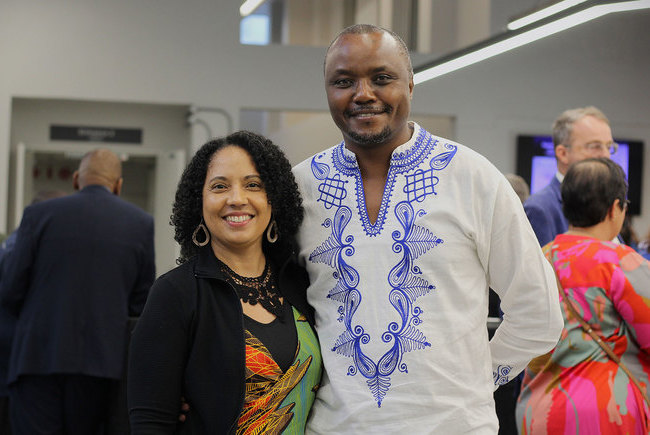
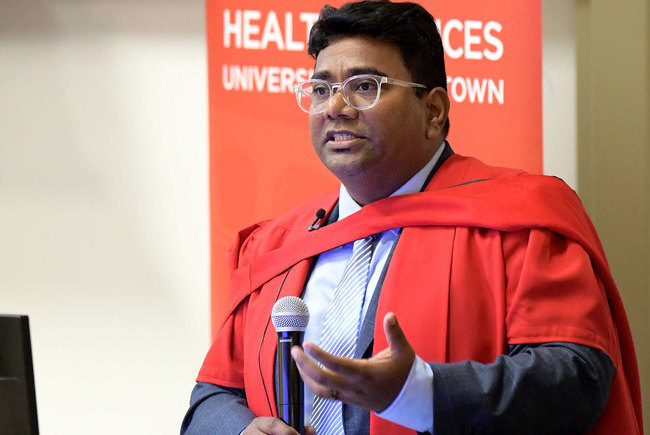
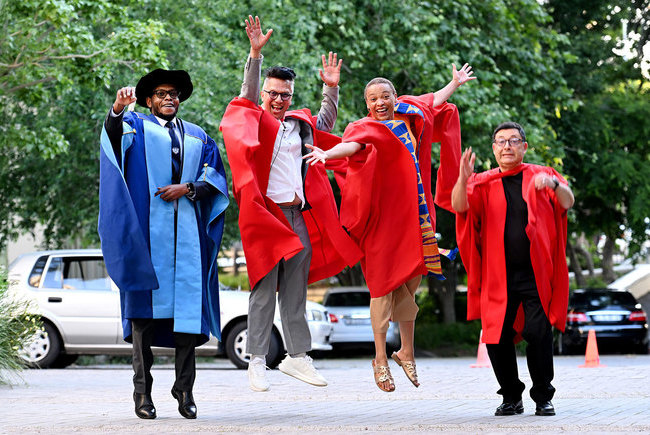
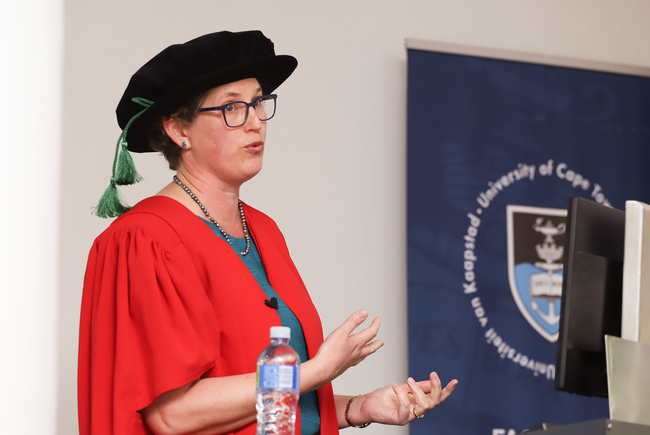
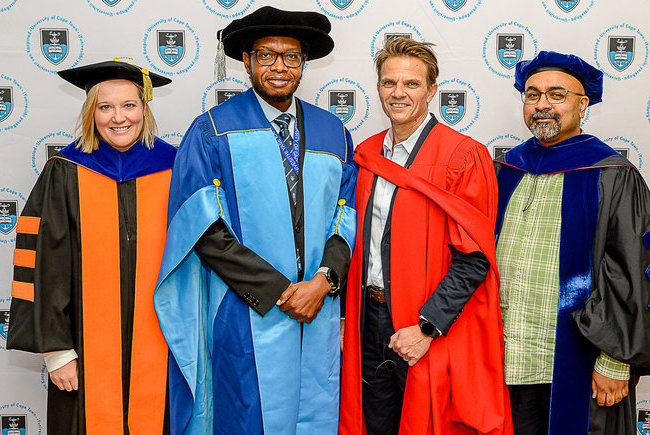
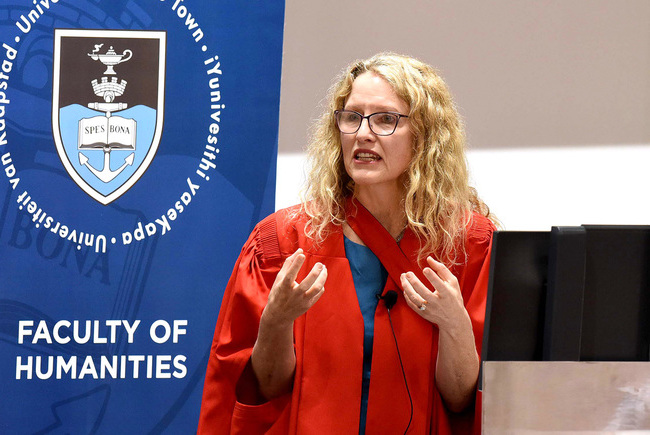
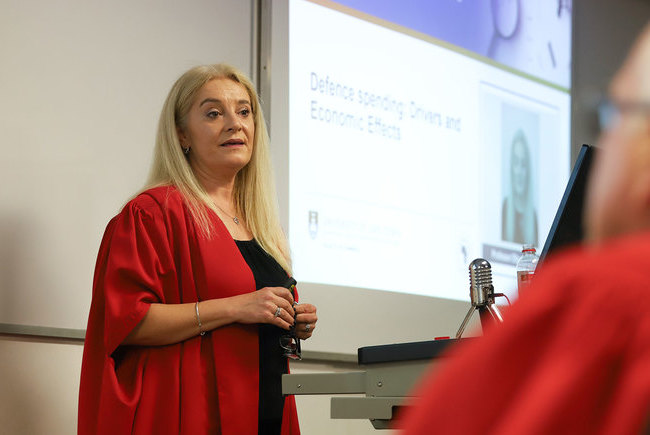
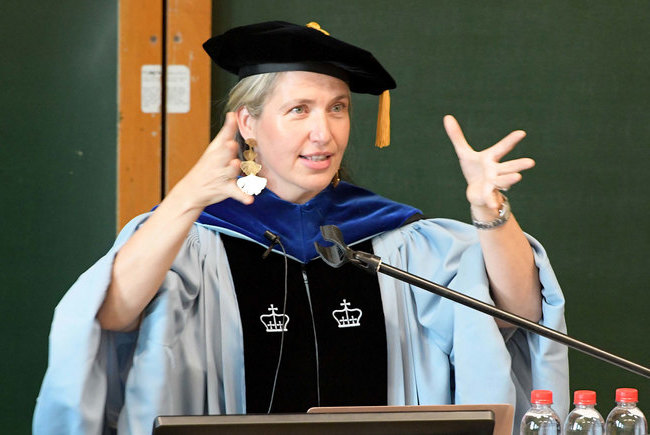
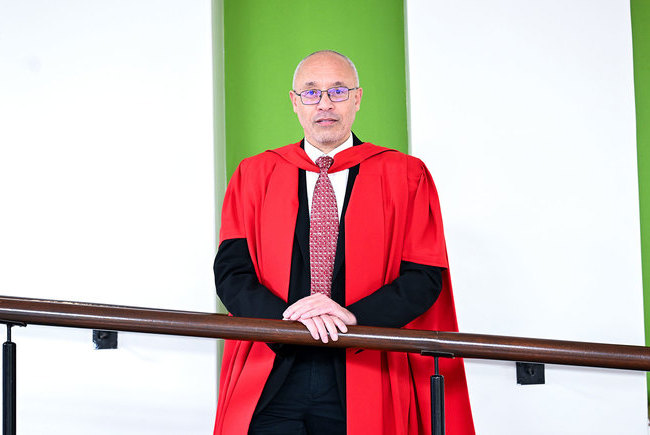
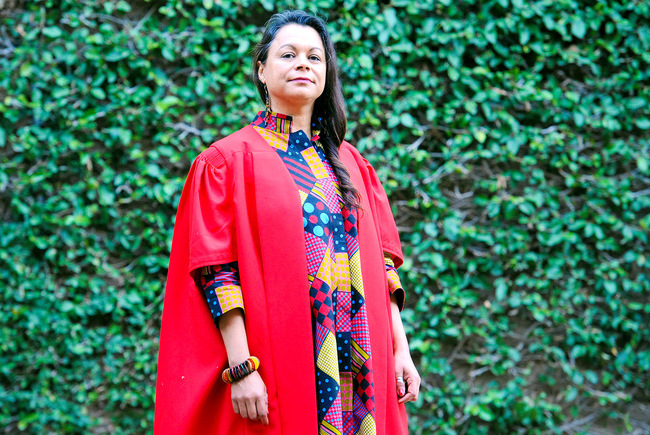
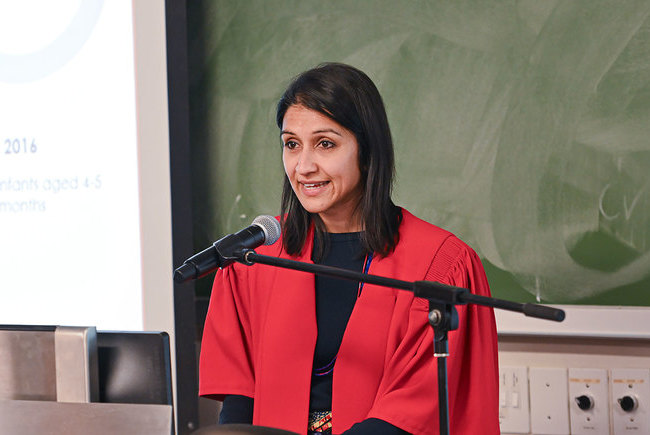
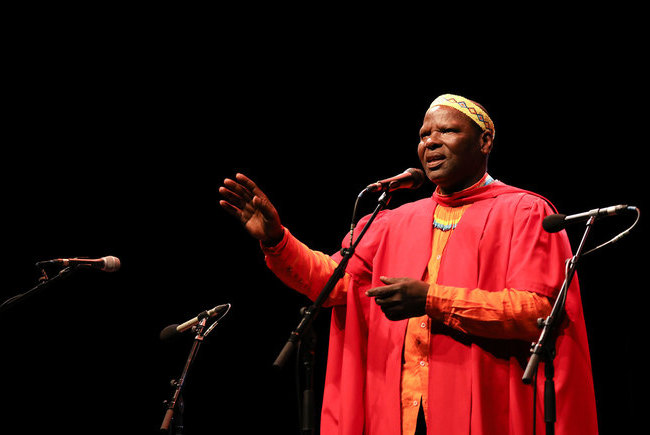
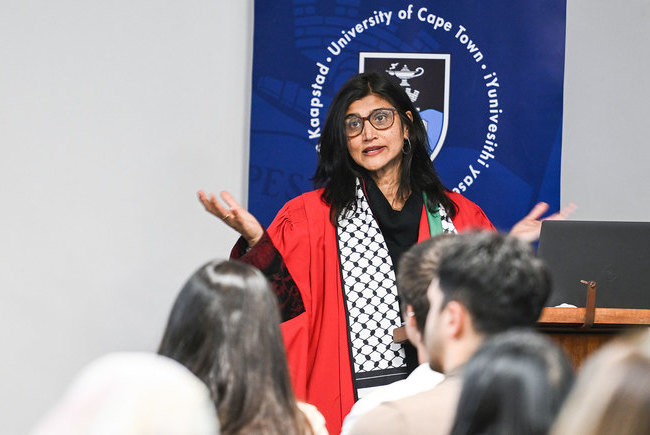
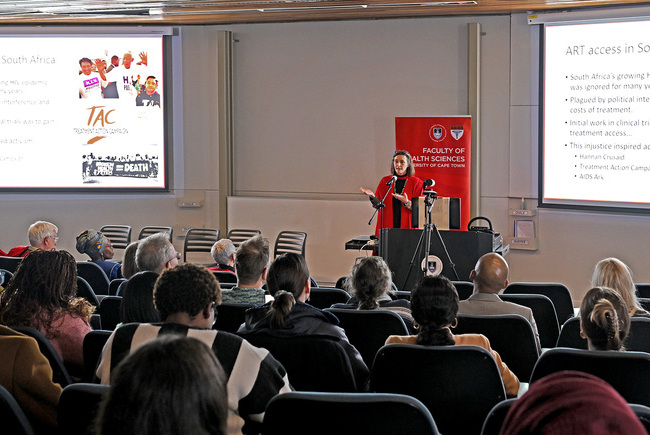
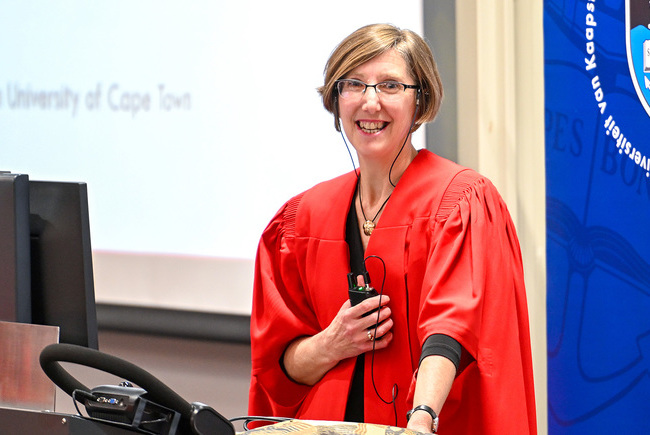
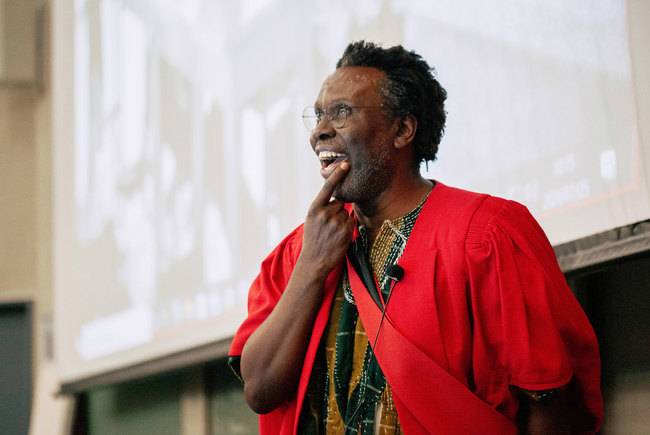
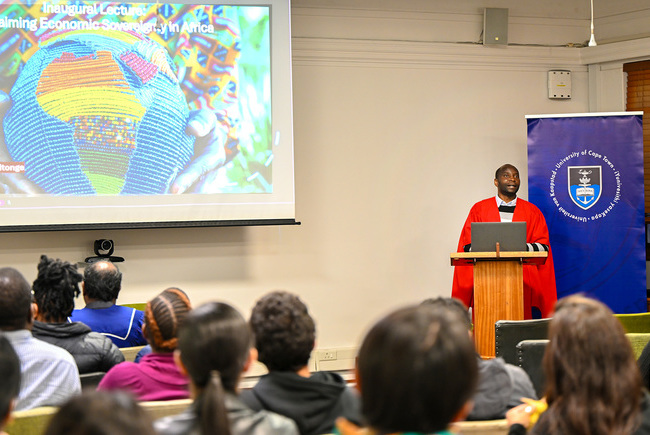
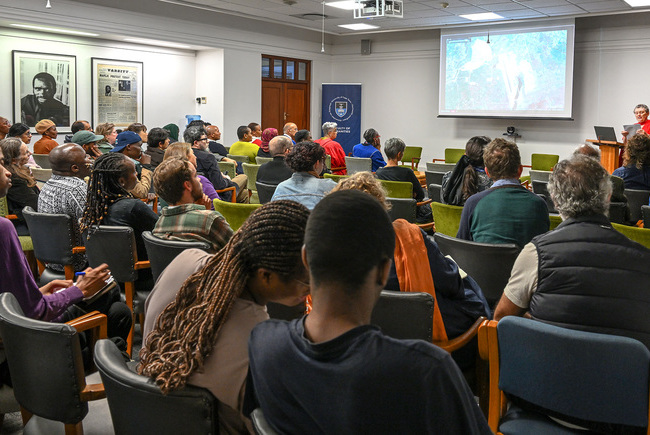
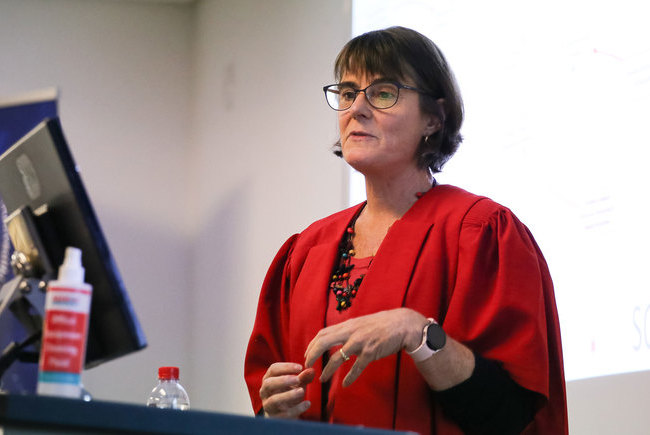
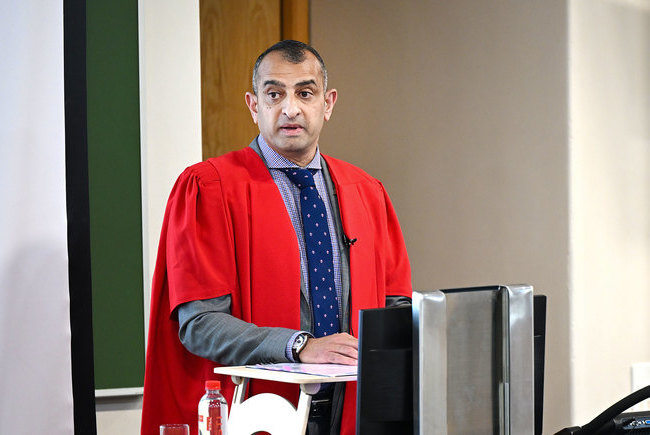
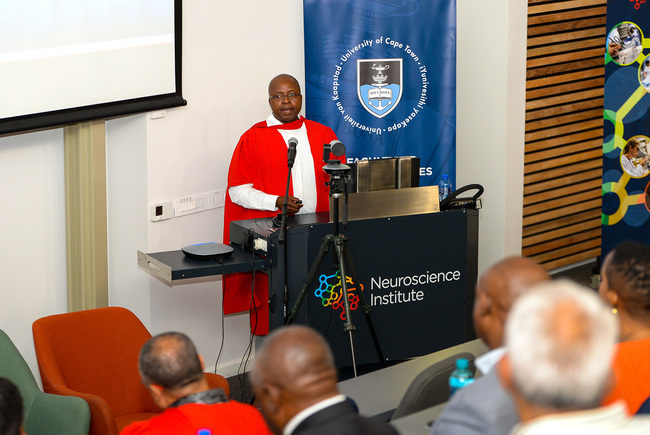

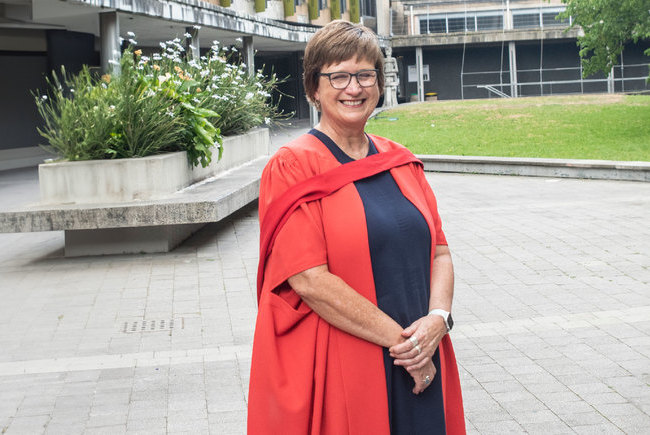
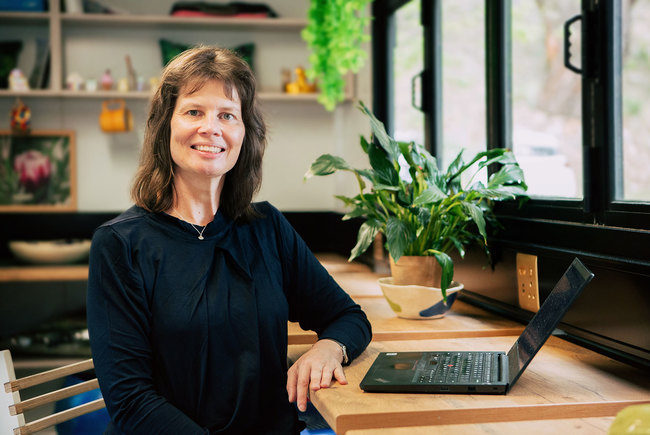
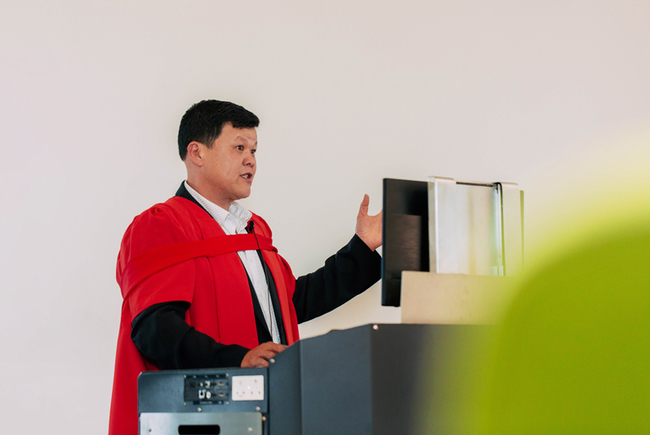
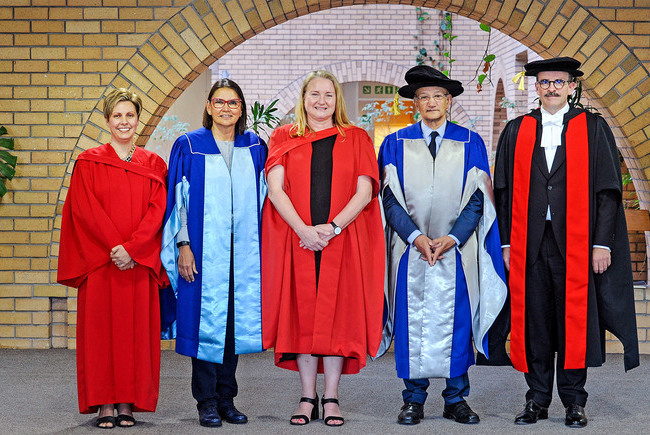

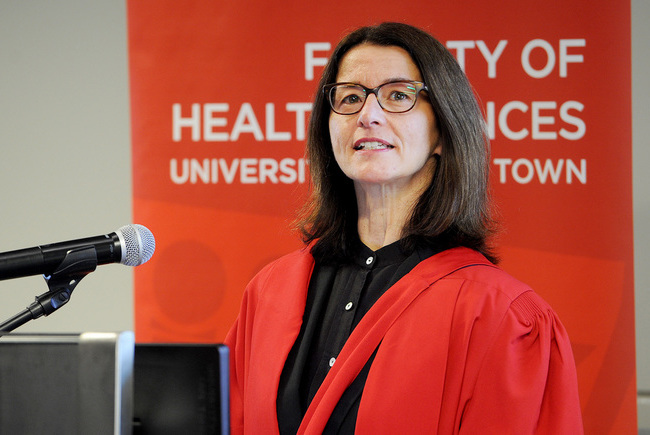
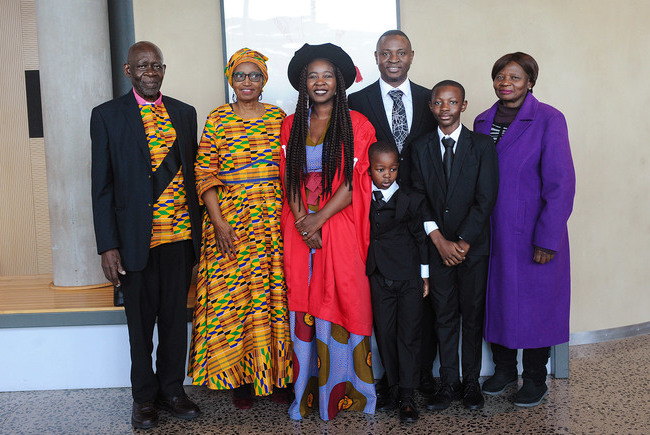
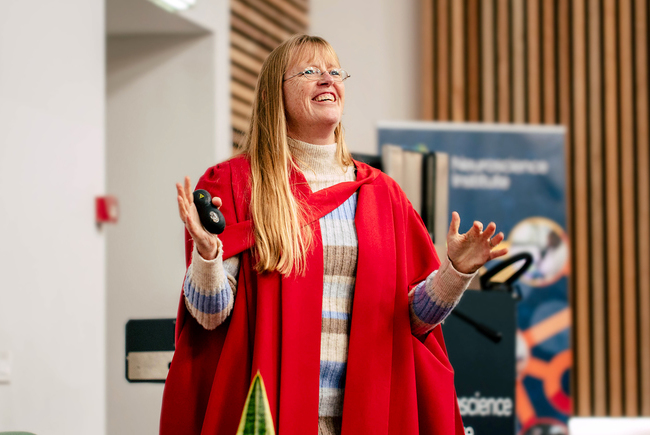

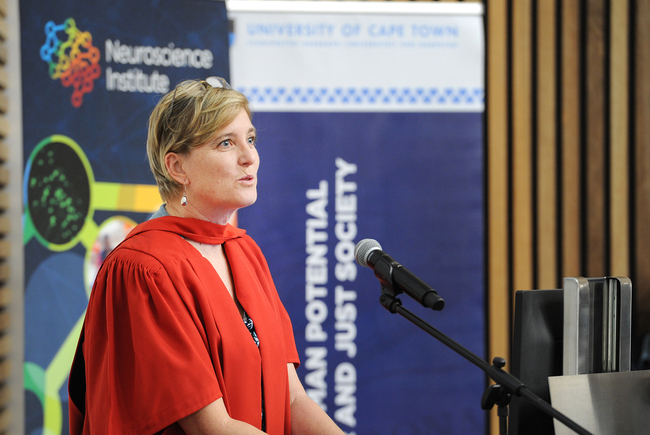
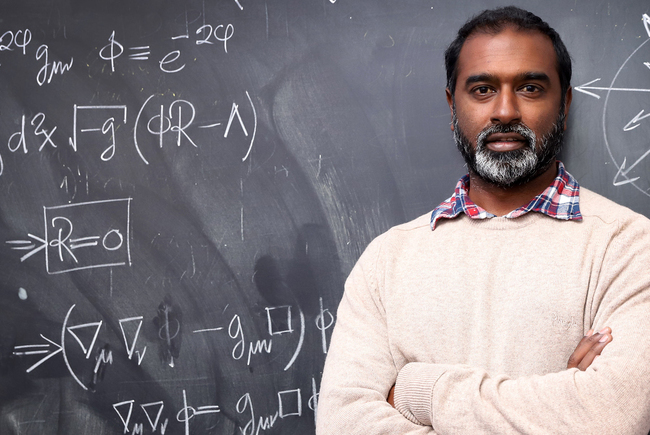
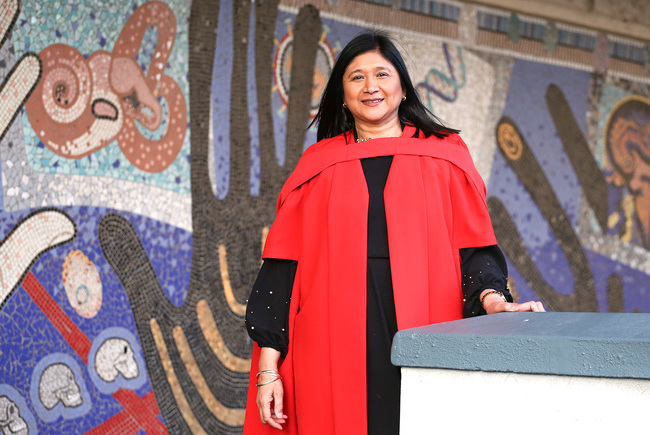
.jpg)
